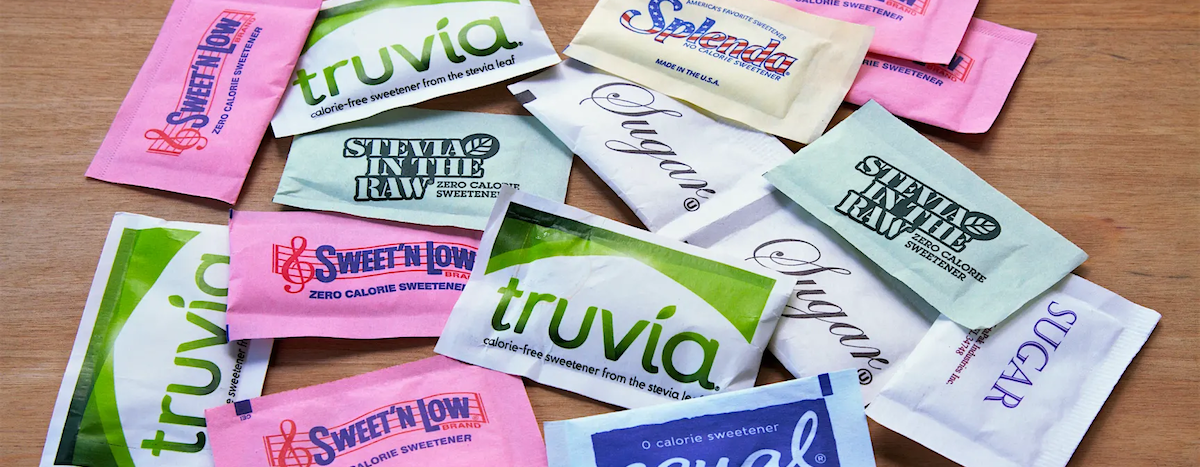
Today’s post has been researched and written by a local high school student with an interest in nutrition and gut health. I hope you enjoy their article as much as I do!
Artificial sweeteners are non-nutritive chemical sweeteners that are many times sweeter than table sugar. First discovered in 1879, artificial sweetener use has been on the rise in the past years due to consumers looking for a healthier alternative with fewer calories.
These sweeteners can be purchased individually and added to food but are also found in an array of everyday products. For example, many “sugar-free” cookies and candies are loaded with artificial sweeteners and sugar alcohols, and these sweeteners can even be hidden in products such as breads and popcorn.
The main difference between the digestion of artificial sweeteners and natural sweeteners is that artificial sweeteners are not absorbed in the upper gastrointestinal tract, instead, they make their way to the colon where bacteria are able to feed on them.
Furthermore, artificial sweeteners may negatively affect your gut microbiome, which is the name for all the bacteria and fungi that live in your gut. This is a big deal because your gut microbiome influences the health of your body. A healthy gut microbiome equals a healthy body. An unhealthy gut microbiome puts you at risk for different diseases and health conditions.
A healthy gut microbiome equals a healthy body. An unhealthy gut microbiome puts you at risk for different diseases and health conditions.
Research is starting to show that using artificial sweeteners can lead to dysbiosis, an imbalance of bacteria in your gut. For instance, a recent study showed that using artificial sweeteners killed numbers of Lactobacillus, a well-known beneficial bacteria. Dysbiosis can increase your susceptibility to conditions such as irritable bowel syndrome (IBS), cancer, diabetes, and even cardiovascular or nervous system issues.
Additional research is showing that artificial sweeteners may impact your glucose tolerance and in turn put you at a higher risk for certain diseases, such as diabetes.
What about stevia and monk fruit extract?
Sweeteners such as stevia and monk fruit extract are natural, leading people to assume that they are automatically healthier than synthetic sweeteners. However, studies have disproved those assumptions, showing some of the same negative effects also caused by synthetic sweeteners, such as imbalance of gut bacteria, increased susceptibility to diseases, and blood sugar spikes. Though the FDA has deemed monk fruit (as well as the other sweeteners) as safe, monk fruit has had the least amount of investigational research, and its benefits and potential adverse effects are still partially unknown—so take these natural sweeteners with a grain of salt.
Bottom Line: What we eat affects our health, including our gut health. However, we are still learning exactly how and why this happens. So far, it appears that artificial sweeteners aren’t the healthiest for your body. Does this mean you need to avoid them altogether? Not necessarily. It just means you need to be aware. Today, it appears that a little bit of the real thing (such as honey or regular sugar) is a better option than a lot of the artificial stuff, especially when it comes to gut health.
- Eating Behavior (47)
- Grocery Shopping Tip (9)
- Gut Health (42)
- Healthy Eating (49)
- Low FODMAP (13)
- Nutrition Articles (32)
- Recipes (27)
- Uncategorized (4)



